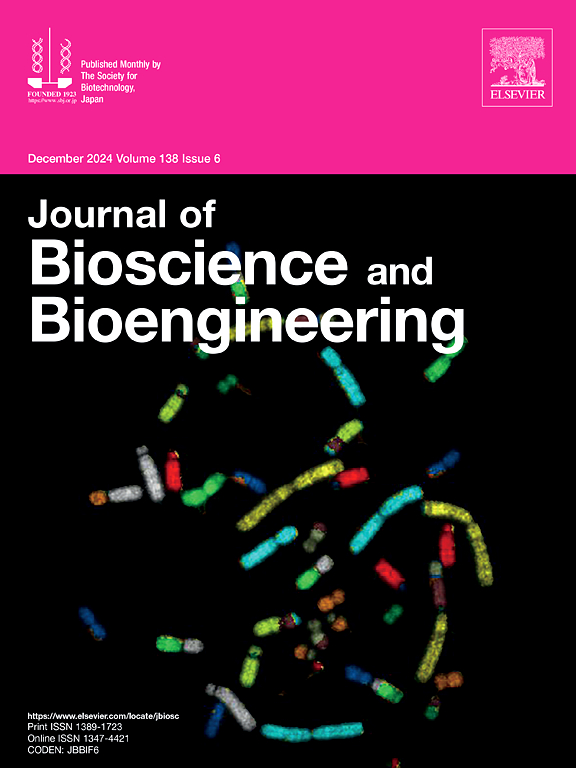可酶法交联硫酸化细菌聚葡萄糖醛酸是一种基于亲和力的 FGF-2 载体,可用于治疗性血管生成。
IF 2.3
4区 生物学
Q3 BIOTECHNOLOGY & APPLIED MICROBIOLOGY
引用次数: 0
摘要
成纤维细胞生长因子-2(FGF-2)是一种对血管生成和组织再生等生物过程至关重要的蛋白质。最近,开发出了基于半合成硫酸化多糖的水凝胶,用于控制 FGF-2 的输送。这些基于亲和力的 FGF-2 载体利用硫酸化多糖水凝胶实现了 FGF-2 的持续递送,但可供选择的材料有限。在这里,我们展示了一种基于细菌聚葡萄糖醛酸(PGU)的新型合成硫酸化多糖水凝胶。我们合成了苯酚接枝硫酸化 PGU(PGUS-Ph),它是一种可酶交联的 PGU 衍生物,对 FGF-2 的亲和力更强。PGUS-Ph的水溶液与FGF-2结合后,可以微创方式注入患处并形成水凝胶。PGUS-Ph 水凝胶释放的 FGF-2 可诱导血管形成,这一点已在基于小鸡胚胎的血管生成试验中得到证实。我们的研究结果表明,PGUS-Ph 有潜力成为一种可酶交联、微创注射的亲和性 FGF-2 递送系统。本文章由计算机程序翻译,如有差异,请以英文原文为准。
Enzymatically cross-linkable sulfated bacterial polyglucuronic acid as an affinity-based carrier of FGF-2 for therapeutic angiogenesis
The fibroblast growth factor-2 (FGF-2) is a critical protein for biological processes such as angiogenesis and tissue regeneration. Recently, hydrogels based on semi-synthetic sulfated polysaccharides have been developed for the controlled delivery of FGF-2. These affinity-based FGF-2 carriers utilizing hydrogels based on sulfated polysaccharides enable sustained delivery of FGF-2, yet choice of materials is limited. Here, we demonstrate a novel synthetic sulfated polysaccharide-based hydrogel based on bacterial polyglucuronic acid (PGU). We synthesized phenol-grafted sulfated PGU (PGUS-Ph), an enzymatically cross-linkable PGU derivative that exhibited an enhanced affinity for FGF-2. The aqueous solution of PGUS-Ph, when combined with FGF-2, could be injected into affected sites and form a hydrogel in a minimally invasive manner. The FGF-2 released from the PGUS-Ph hydrogel induced blood vessel formation, as proven by a chick embryo-based angiogenesis assay. Our results indicate that the PGUS-Ph has the potential as an enzymatically cross-linkable and minimally invasively injectable affinity-based FGF-2 delivery system.
求助全文
通过发布文献求助,成功后即可免费获取论文全文。
去求助
来源期刊

Journal of bioscience and bioengineering
生物-生物工程与应用微生物
CiteScore
5.90
自引率
3.60%
发文量
144
审稿时长
51 days
期刊介绍:
The Journal of Bioscience and Bioengineering is a research journal publishing original full-length research papers, reviews, and Letters to the Editor. The Journal is devoted to the advancement and dissemination of knowledge concerning fermentation technology, biochemical engineering, food technology and microbiology.
 求助内容:
求助内容: 应助结果提醒方式:
应助结果提醒方式:


